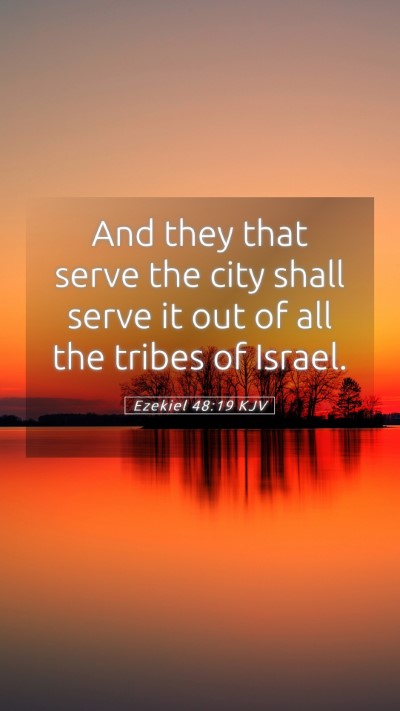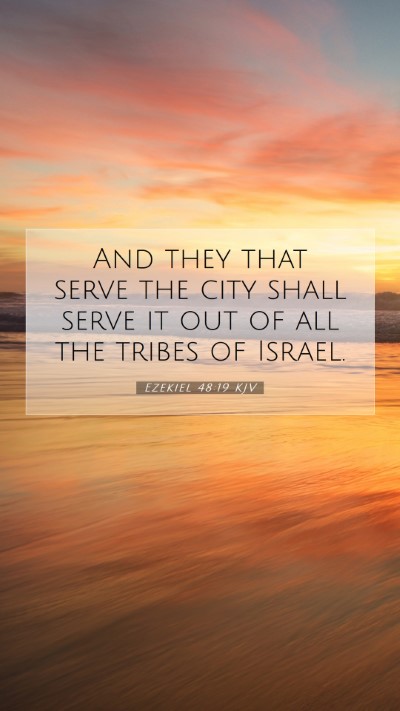The verse reads: "And they that serve the city shall serve it out of all the tribes of Israel." This verse is a part of the concluding chapter of the Book of Ezekiel, which provides a vision of the future restoration of Israel.
Meaning and Interpretation
This verse encapsulates the distribution of responsibilities among the tribes of Israel, reflecting the themes of unity, service, and the role of each tribe in maintaining the communal structure of the future city.
Insights from Commentaries
- Matthew Henry: He comments on the organized nature of the people who will administer the city, emphasizing that the governance and service roles are essential for the communal well-being of Israel. Service defines their identity and contributes to the greater glory of God.
- Albert Barnes: Barnes highlights the inclusion of all tribes. Each tribe contributes to the governance and upkeep, symbolizing mutual support and shared responsibilities. This serves not just for order but as a testament to God’s provision for His people.
- Adam Clarke: Clarke discusses the spiritual significance of service, indicating that service to the city reflects servant leadership modeled by God Himself, where the leaders must show an example of humility and dedication to community needs.
Biblical Context
Understanding this verse requires looking at the broader context of Ezekiel's vision. The Book of Ezekiel outlines God's plan for restoring Israel after the Babylonian exile, including detailed instructions for national and religious life. Ezekiel 48 deals primarily with the allotment of land and roles within the New Jerusalem.
Historical Context
The historical setting of this text is crucial. After years of captivity, the Israelites receive a divine promise for restoration, and this vision of order is part of that hope. Each tribe's service denotes their stability and belonging in the larger community.
Application and Significance
In applying Ezekiel 48:19 to contemporary life, we can reflect on the importance of community service and the roles individuals play in society. The principle that all serve for the common good remains relevant today.
Modern Implications
This verse encourages us to consider our roles within our communities. Are we serving others? Are we contributing to the collective? Just as each tribe had a purpose, we too are called to find our place and serve effectively.
Related Bible References
- 1 Corinthians 12:12-27: Discusses the body of Christ and the importance of each member.
- Hebrews 13:16: Encourages doing good and sharing, for God is pleased with such sacrifices.
- Matthew 20:26-28: Jesus teaches about service and leadership, emphasizing servanthood.
Conclusion
In conclusion, Ezekiel 48:19 speaks volumes about the importance of community and service. The blessings of unity and mutual support reflect a divinely ordained plan where each person contributes towards the flourishing of all. This understanding is essential not only for individual spiritual growth but for nurturing thriving communities today.


